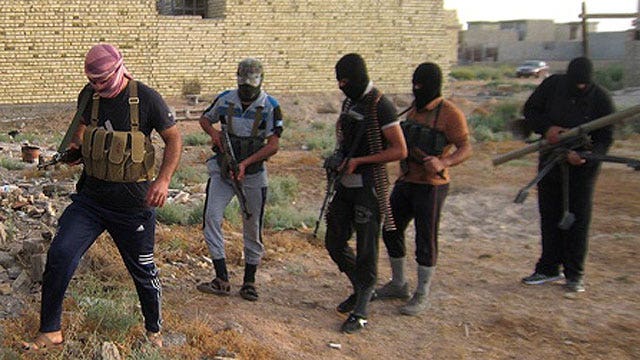Thousands of miles away from the Middle East, it is tempting for Americans to view the atrocities committed by the Islamic State (ISIS) as further evidence that something is wrong with Islam. Taking such intellectual shortcuts, however, produces divisive domestic politics that keep us less safe as a nation. The politics of authoritarianism, rather than religion, explain the rise of ISIS.
For nearly four years we have witnessed unprecedented political turmoil throughout the Middle East. Eclipsing the long-standing Israeli-Palestinian conflict that once dominated the region’s politics, Arab citizens reshaped the geopolitical landscape when they rose up demanding democracy, freedom and social justice.
[pullquote]
Suffering from decades of corruption, increasing poverty and abusive state practices, Muslim and Christian Arabs alike wanted the same things we want – jobs that pay enough to support a family, good schools for their children and the freedom to express their views to hold their governments accountable.
The people’s courageous efforts to take their grievances to the streets triggered a domino effect that pushed out dictators in Libya, Tunisia, Egypt and Yemen. In Syria, the Assad regime proved to be much more intractable, due in part to the support of Iran and Russia coupled with America’s indecision. All the while, Iraqi politics remained in crisis as its people struggled to restructure their political system after the U.S. invasion that ousted Saddam Hussein, one of the most brutal dictators in the region.
While these seismic shifts in Middle East politics created opportunities for democratic processes to take root, they also created power vacuums for extremist groups to exploit. The high-stakes, all-or-nothing authoritarianism that has dominated the Middle East, with the support of Western nations, created a political environment ripe for fanaticism to take hold.
Decades of dictatorship and state violence produce far more than a terrorized population. They nurture extremism that knows only the language of violence. Young people whose bodies have been terrorized by security forces respond with their own form of terror.
To legitimize their cause and gain followers, the extremist groups manipulate the norms and values of the local population. In the majority-Muslim Middle East, religion is exploited to justify war – a phenomenon not unique to Islam or the Middle East.
The rise of the Islamic State is the latest, and arguably most vicious, iteration of this phenomenon. Exploiting the sectarianism fueled by past and present dictators to prevent a united citizenry from revolting, ISIS is invoking the language of the oppressed to justify its own oppression. Victims of its brutality include other Sunni Muslims who reject ISIS’ twisted, anachronistic interpretations of Islam, Shiite Muslims who are axiomatically deemed heretics and people of other faiths.
The biggest losers in this travesty are the tens of millions of Muslim and Christian Arabs who risked their lives in peaceful protest to kick out oppressive dictators. Their courage proved to the world that Muslims and Arabs are humans who want what we all want, rather than the Middle East terrorists that dominate news coverage of the region. But ISIS’ atrocities have already replaced the images of millions of peaceful protesters with barbaric executions of journalists, religious minorities and other Muslims, inviting us to forget the humanity we saw on full display during the Arab Spring.
If we are serious about preserving our own democracy, we should not be tempted to revert to divisive stereotypes that cause us to suspect our Muslim neighbors and acquiesce to government profiling.
Terrorism is a complex political problem arising from social, economic and political inequities. Blindly blaming religion is a recipe for a failed foreign policy strategy that addresses symptoms rather than root causes, which in turn sets the foundation for more violence in the future.
Nor should we allow ISIS’ violence to scare us into accepting the return of secular authoritarians who benefit when Islam is conflated with terrorism. Instead, our efforts are best spent investing in schools, health care and economic development to facilitate what the vast majority of Muslims and Christians in the Middle East desire – a society that resolves its disputes equitably, openly and peacefully.





















